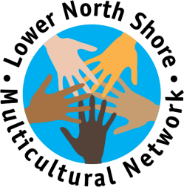These are extraordinary times with the COVID-19 pandemic. No area of the Australian community is untouched and none more so than our vulnerable communities. To borrow from the opening lines of Charles Dickens’ A Tale of Two Cities:
“It was the best of times,
it was the worst of times,
it was the age of wisdom,
it was the age of foolishness,
it was the epoch of belief,
it was the epoch of incredulity,
it was the season of Light,
it was the season of Darkness,
it was the spring of hope,
it was the winter of despair”….
We watch what unfolds from all around the globe and our hearts are heavy with the extent of the suffering but in the “spring of hope” we also see how carers, health professionals, a diverse range of workers and people in the community have gone about their work to alleviate suffering and make things better. Thankfully, we have seen an easing of restrictions with gatherings now possible at eateries and we are able to play sport, swim and visit gyms. From 1 July, a further easing on public transport and indoor and outdoor gatherings. These are heartening developments, but many people have lost jobs, have clouds over their heads about making ends meet and having a place to sleep. Thankfully, we have seen all three levels of Government come up with innovative ways to be compassionate and support business, social services, and those in need. Who would have thought that we would see free childcare, a doubling of Centrelink payments and periods of free rent for tenants, community groups and businesses in properties?
Another impressive highlight has been how government and community organisations adapted when providing services to clients. We know we can continue to deliver services remotely and safely, so we must take stock. What have we learnt and how are we going to be proactive in our next steps? Can some of the flexible work practices carry on into the future to better support family-work-life balance.
Here are some of my observations. Initially, it was imperative to get public health messages out to the culturally and linguistically diverse communities and to rely on the State and Federal Health Departments and reputable information as the source. This is not the time for Social Media hearsay. What is impressive is that the language services of Multicultural NSW, SBS and the Translating and Interpreting Service (TIS), were used to explain Coronavirus in community languages. It had issues, such as keeping up with the regular changes and getting the messages to where it was needed, but it did make a difference.
Next, Australia’s mental health has been through the mixer. Services are reporting increases in contact and there is a cumulative effect on each person and every household with the intensity of existing experiences having the ability to lead to depression, anxiety and trauma. People’s coping responses to violence, abuse and childhood neglect, such as alcohol and other drug use, or the impacts on existing mental health issues, may also increase during these times making counselling and health care services a priority. A big shout out to the Health Services across the board as, Covid-19 was addressed as a public health crisis, and the responses of vigilant testing, education, universal health care, physical distancing and rigorous deep cleaning and hygiene have lessened the impacts in comparison to other nations.
Unfortunately, in the category of ‘the worst of times’ is the increase in racism, particularly disturbing incidents against Asians. Covid-19 should not be an excuse for people to act on their racist intentions. Some of the government responses have missed groups, with reports of refugee and migrant families running out of food and facing eviction because they do not qualify for government support. Assistance for people on temporary visas, asylum seekers and international students has seen a dramatic increase because of the despair and risks to their well-being. Some crisis assistance from the Federal government was thankfully supplemented by the NSW government funding of over $6 million for migrant workers and temporary visa holders and $20 million for international students in NSW impacted by Covid-19.
It has been gratifying to see so many members of the LNS Multicultural Network, from all three levels of Government and community organisations adapt and find new ways to service their clients. Everything from networks meetings, working groups, training and courses going online, to out of hours responses and working remotely have meant servicing continues for the vulnerable and our clients. Excellent referral information that is updated regularly has been imperative. Thanks to North Sydney Council, referral information on the Services to our Multicultural community during COVID-19 is available in one place.
Stay safe and let us look forward to the ‘season of Light’.
Eric Poulos
Chairperson, LNS Multicultural Network
June 2020
